Nicola Johnson is the British former wife of Ziad Takieddine, a Franco-Lebanese arms dealer who is at the centre of what has become known in France as the ‘Karachi Affair', involving secret political funding from commissions paid in French weapons sales abroad.
Johnson, 50, who also holds French nationality, divorced from Takieddine in September, after a lengthy, acrimonious procedure that ended at the Paris Court of Appeal. In the process, she became a key witness in the ongoing judicial investigation into the suspected funding scam, led by Judge Renaud Van Ruymbeke.
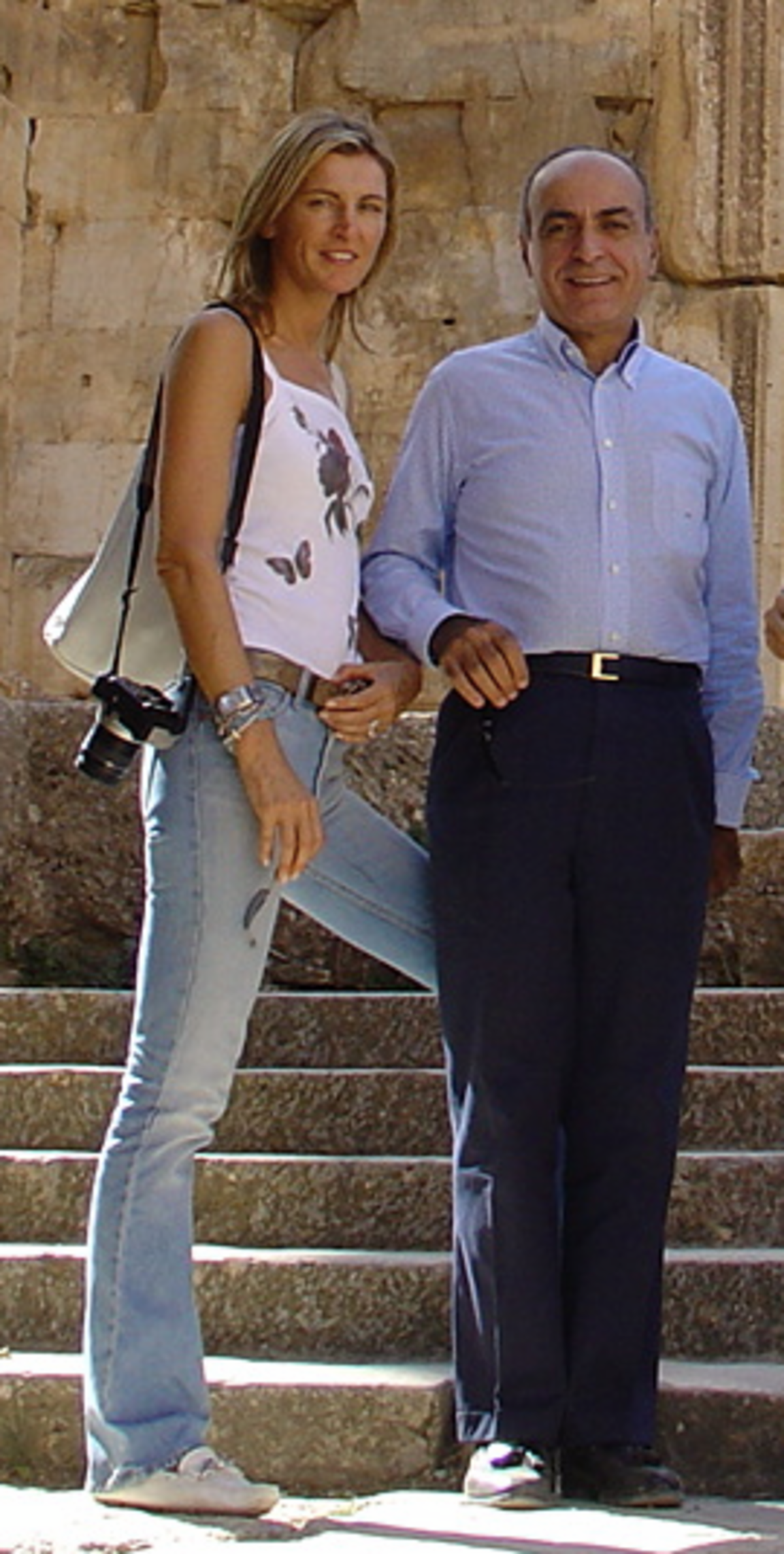
In September, Van Ruymbeke [1]formerly placed under investigation - one step short of charging - Takieddine, 61, and two of President Nicolas Sarkozy's close entourage, Nicolas Bazire and Thierry Gaubert, for embezzlement. The investigation centres on the suspected siphoning off of commissions, or bribes, paid during the French arms sales to Pakistan and Saudi Arabia in the 1990s, and which returned to France via a complicated financial structure.
Van Ruymbeke has established that Takieddine was imposed as an intermediary in the weapons deals, on the orders of the government of former Prime Minister Edouard Balladur, a political mentor for Sarkozy who served as Balladur's budget minister. The contracts were for the supply of three Agosta-class submarines to Pakistan, and of three French La Fayette-class frigates to Saudi Arabia, a deal codenamed Sawari 2.
(For more detail on the background to the contracts, and what is thus far known to have led to the deaths of 11 French naval engineers in a bomb atack in 2002, at the heart of the scandal, see a Q&A guide here and a video presentation here).
But the implications of the case go further than the two deals signed in 1994. Mediapart has revealed how Takieddine continued to play a central role in several weapons sales mounted by senior aides of Nicolas Sarkozy [2] during the past decade (see links to Mediapart's investigations at the bottom of page five). Days after he was placed under investigation, the arms dealer and intermediary appeared to address an extraordinary warning to the French president during a television interview. "I want to see the president, he has an interest, I think, and France has an interest, that he receives me for at least 15 minutes," Takieddine told BFMTV in September.
In her divorce battle through the French courts, Nicola Johnson produced documents relating to Takieddine's financial affairs, including offshore companies and bank accounts, and she and her lawyers estimate his wealth worldwide to total some 100 million euros. A number of the documents, which Johnson says came from boxes found in the couple's London home, but which Takieddine has accused her of stealing, were transferred to Judge Van Ruymbeke. Subsequently Johnson, who married Takieddine in 1985, was questioned by police in September about what she knew of the suspected illegal political funding scam.
In this interview granted conjointly to Mediapart and French news weekly L'Express, she speaks publicly for the first time about events connected to the case and the activities of her husband. She also confirms the very close relations he has with senior aides and friends of Nicolas Sarkozy, how the arms dealer told her he was "protected", and recounts when she once found a bullet shot through her car windscreen. The interview, recorded Saturday November 5th (see video below), was conducted in French at the Paris offices of her lawyers, William Bourdon and Joseph Breham, who were present.
-------------------------
Mediapart: Why have you now dropped your silence?
Nicola Johnson: I feel forced to today by the violent attacks from my former husband, who makes serious allegations against me. It is insupportable for me to listen to these lies and these falsifications without replying. I want to set the facts straight.
Mediapart: What are these lies?
N.J.: My former husband tries to pass himself off as a victim. He presents me as a woman who has never stopped lying to the judges, and accuses me of having stolen documents. That's false. The papers that I found in our London home were not even kept under lock. They were simply placed in boxes, in an office. He accuses me also of having forced open the safe box in our own home, in Paris.
-----------------------
1: Renaud Van Ruymbeke, 59, is specialised in financial crime and has led several, high-profile investigations into political corruption involving figures and parties from both the Left and Right. He also led the successful second investigation into the 1996 rape and murder in Brittany of 13 year-old British girl Caroline Dickinson and was latterly one of two magistrates in charge of the pre-trial investigations into Société Générale 'rogue' trader Jérôme Kerviel.
2: Following Edouard Balladur's 1995 election defeat, Nicolas Sarkozy returned to government seven years later when he was appointed as interior minister, under then-President Jacques Chirac, from May 7th 2002 until March 30th 2004. He became finance minister from March 31st 2004 until November 29th 2004, again under President Chirac. He was re-appointed interior minister, still under the presidency of Jacques Chirac, from June 2nd 2005, until March 26th 2007. Nicolas Sarkozy was elected president of France in 2007 and took up office on May 16th 2007.
Mediapart: Ziad Takieddine says that you, like Hélène Gaubert [1], are speaking to the police because you are interested in money. Others suggest there is a sort of association between two divorced women who seek vengeance via an affair of State. How do you answer that?
N.J.: It is not with lightness of heart that I spoke to the police and [magistrates] about my husband. I was summoned by the police, I had no choice. That has nothing to do with money.
It is our husbands who led us into this. Hélène and I, in this affair of State! I have known her since 1993. We became very close, the children too. Hélène is a very honest woman, incapable of lying. And she is not stupid, as her husband would like it to be believed.
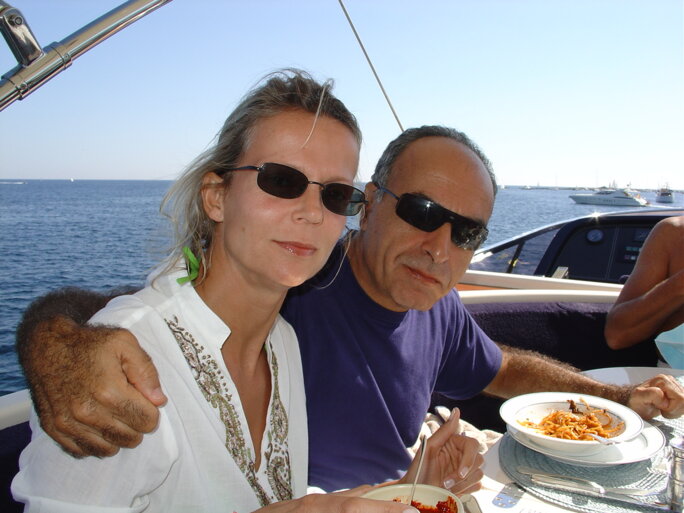
Enlargement : Illustration 3

Mediapart: What do you now intend doing?
N.J.: I have just filed a complaint for ‘abandonment of the family'. Since 18 months ago, my former husband no longer pays maintenance allowance. In January 2010, he stopped paying the rent of the apartment we, the children and me, lived in in London, whereas he was bound to this by judicial order, to the extent that the owner has launched proceedings against me. I sought help from the English justice system. It gave us the right to live in our house in Holland Park, which was empty but to which Ziad refused me access.
Mediapart: In what financial situation are you in today?
N.J.: Extremely difficult. I cannot pay my bills for electricity, gas, water. I live thanks to my family who lend me money, thanks to the help of friends. I have just received a letter from the school of my son Nadim, in London. My former husband has not settled the schooling fees, whereas the divorce settlement imposed this on him. My son might not be able to go to school this week.
Mediapart: But your husband was ordered by the Paris appeal court this September to pay you three million euros.
N.J.: He is not even capable of respecting a minimum of his judicial obligations. He began to cut me off well before I was summoned by the police. He behaved in this manner as soon as I decided to appeal the divorce ruling of February 2009.
Mediapart: This first divorce ruling was announced without you attempting to defend yourself. Why?
N.J.: I was frightened of my husband, who can show himself to be very intimidating. From September 2006 to September 2007, I was followed by private detectives. I have photos proving this. I suffered threats, also. When Ziad filed his request for divorce in 2006, I discovered papers that were embarrassing for him, notably about the extent of his wealth and the amplitude of the dissimulation of his assets. He frightened me because he said I would go to prison if I produced before justice authorities these documents, supposedly classed as [official] defence secrets. In June 2010, he filed a complaint against me and my then lawyer, with no follow-up at present.
Mediapart: Were you afraid of your husband or of his political protections?
N.J.: Of both. Ziad always told me he was protected. I knew his frequentations, I knew that he had very close links with the current political powers. And then, for a longtime I had hoped for a reconciliation.
-------------------------
1: Hélène Gaubert, Princess of Yugoslavia, is the estranged wife of Thierry Gaubert, a longtime aide and friend of President Nicolas Sarkozy. He was recently placed under investigation for his suspected role in illegal party funding. Hélène Gaubert has notably given police statements alleging he and Takieddine transported suitcases of cash to Paris from a Swiss bank, handing them over to Nicolas Bazire, then political campaign director of former Prime Minister Edoaurd Balladur. For more on this, click here.
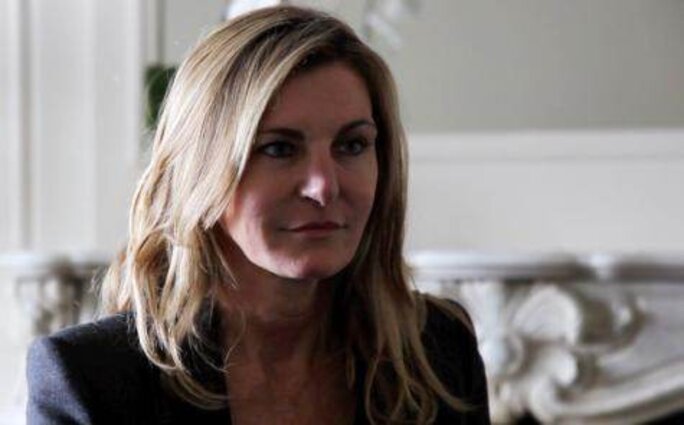
Mediapart: When did you realise the extent of your former husband's wealth, estimated to be 100 million euros?
N.J.: At the time of our divorce. I also discovered on that occasion that Ziad didn't pay taxes. I had always been kept out of his finances, from his income, from his tax returns. I looked after the house, the children, the dinners, the receptions. In short, I did the public relations. I knew that he worked on contracts between Saudi Arabia and France, notably on Sawari 2. I also knew that he received commissions. He told me that it was legal, and I believed him. He didn't enter into the details of the contracts and the sums of money at stake.
Mediapart: You knew, all the same, that you were rich.
N.J.: When I got to know Ziad, he was the director of the Isola 2000 ski resort, but he was a simple employee. As of 1993, when we settled in Paris, our lifestyle grew little by little. There were firstly the luxurious holidays, then trips by private plane and property investments, a chauffeur and domestic staff.
But it was only during the procedure of the appeal against my divorce that I was able to measure the immensity of his wealth and the complexity of the mechanisms put in place to dissimulate it. I even discovered recently that he had removed some of the furniture from our [Paris] apartment, Avenue Georges Mandel. In fact, I intend to file a complaint for ‘organisation of insolvability'.
We have also filed complaints for falsification and use of falsification. I was questioned on this matter last week by the BRDA [French police squad, the Brigade de répression de la délinquance astucieuse].
Mediapart: What is the basis for this complaint for falsification?
N.J.: It concerns the falsification, by my former husband, of my signature on income tax declarations from 2003, 2005 and 2006 which he produced in the context of our divorce. My signature is crudely imitated. And if Ziad was to be convicted of tax fraud, I would become an accomplice because of this falsification. That is not acceptable. All that I discovered only in 2010.
Mediapart: During all of your life together with Ziad Takieddine, were you aware of problems with the tax authorities?
N.J.: He had, I believe, been subject to a tax investigation when he was the director of Isola 2000. But nothing afterwards, to my knowledge. Once again, I wasn't involved in all that.
Mediapart: Has he benefited, according to you, from a particular celemency by the tax authorities thanks to support from certain political quarters?
N.J.: I don't know.
Mediapart: With the benefit of hindsight do you blame yourself, today, for remaining a bit too distant from all these matters?
N.J.: I should have been much more careful, of course. But I was confident in him. Completely. Eyes closed. Stupidly, I agree. Blonde, perhaps!
Mediapart: At the end of September you saw your former husband, in an interview on French TV news channel BFMTV [1], deliver an ultimatum to the French President for a meeting between the two. What was your reaction?
N.J.: I felt shame for him. Shame that he believes himself above the law, so powerful. But it is certain that he has relations with the people in power. I have known this, I have seen this, I have lived this. He must feel that he has the power to do what he does.
Mediapart: Do you believe that at stake here is a feeling of impunity?
N.J.: Certainly. One has that impression from watching the programmes. Once again, I know that he has friends in high places and important political relations with the current political powers [French government]. I said this to the police and the judge. I confirm it. The people I saw him frequent were from the Sarkozy camp. The Copé's [2], we saw them often. They came on holiday with us.
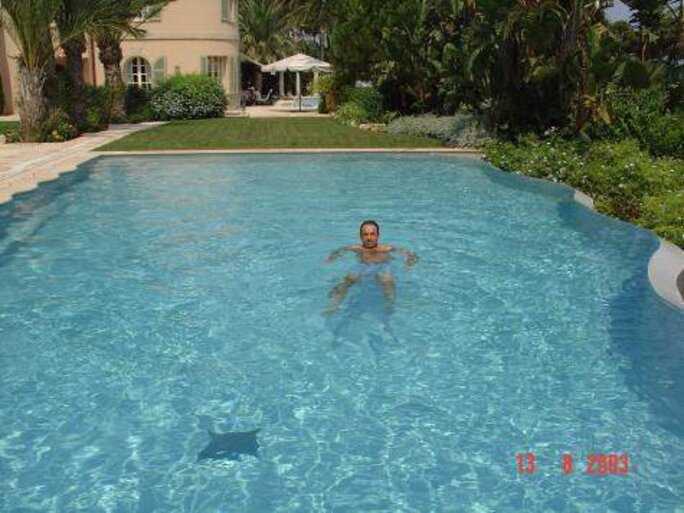
Mediapart: Were you a witness to contacts between your former husband and the presidential office at the time of the liberation of the Bulgarian nurses [3] in Libya in 2007?
N.J.: Yes. I was present during phone conversations, numerous, that Ziad held with Claude Guéant [4]. I have the impression that he really played a role in this case.
Mediapart: You were present on the island of Mustique in the West Indies in April 2004 when your former husband had a serious accident that was, according to him, an assassination attempt linked to his activities as an intermediary. What do you remember of this?
N.J.: That day, Ziad had dropped us off at the beach, our two children, a friend and myself. He had forgotten his mobile phone at the house. So he took his [vehicle], a sort of large golf kart, to go and get it. Apparently, it was while returning from the house to the beach that he had this accident. A domestic employee working in a house nearby called the emergency services.
According to the island's doctor, Ziad suffered a serious head injury, and it was necessary to evacuate him immediately to Barbados for an operation. We took off, within the hour that followed, for Barabados where he was operated during the night by a local neurosurgeon, who saved his life.
-------------------------
1: For a full account of Ziad Takieddine's interview with BFMTV, click here.
2: Jean-Francois Copé, now head (secretary-general) of President Sarkozy's ruling UMP party, served in successive government posts between 2002 and 2007, notably as budget minister from 2004-2007.For more on his relations with Ziad Takieddine, click here.
3: This was the freeing, after lengthy negotiations, of five Bulgarian nurses and a Palestinian doctor imprisoned in Libya for allegedly conspiring to infect children with the HIV virus. It marked the Sarkozy administration's first major diplomatic coup.
4: Claude Guéant, currently French interior minister, served as President Sarkozy's chief-of-staff from 2007 to 2011, and earlier as Sarkozy's principle private secretary both at the finance and interior ministry.
Mediapart: Can you confirm that Jean-François Copé played a role in your husband's repatriation to France?
N.J.: Yes, of course. In panic, I called friends. The first was Thierry Gaubert. He told me, ‘listen, I'll see what I can do'. And during the day Jean-François Copé called me. He knew a French neurosurgeon, on holiday on a neighbouring island, who could help us.
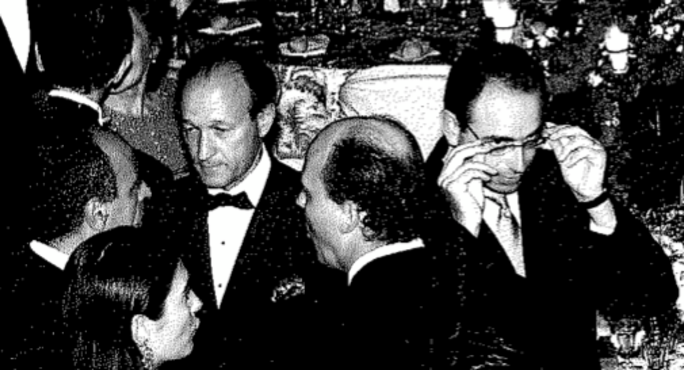
Mediapart: When did the first doubts emerge over the accidental nature of what happened?
N.J.: Not straight away. The first doubts appeared when he was at the Pitié-Salpêtrière hospital in Paris, where he repatriated a couple of days later. The head of reanimation told me that Ziad's injuries didn't match injuries from a car accident. He had no cuts, no bruises on the body, just a large fracture at the back of his head. He told me, ‘for me, he has been hit with a blunt object'. I was frightened and I got a security guard who watched over him 24 hours a day at the hospital.
Mediapart: Did your former husband speak to you about his own doubts of what happened?
N.J.: Yes, but much later. He told me he learnt that it was an assassination attempt linked to his activities.
Mediapart: In Pierre Péan's book La République des mallettes it is suggested that it was Nicolas Sarkozy, in 2005 when he was interior minister, who gave Ziad Takieddine a secret services report that put forward that theory.
N.J.: That's possible. My husband did indeed tell me that he had got hold of a report by intelligence services. But he didn't tell me it was Nicolas Sarkozy who gave it to him. Neither did he tell me who gave the order.
Mediapart: Did your former husband's behaviour change after the events on Mustique?
N.J.: He became very quick-tempered, very easily angered, very dark, much more intimidating than before. A bit as if all his characteristics were incredibly amplified. It was impossible to have a discussion with him.
Mediapart: Ziad Takieddine was already in 1996 the target of threats when the Chirac government decided to interrupt the payment of commissions in the two deals with Pakistan and Saudi Arabia. Can you confirm this?
N.J.: Yes. A bullet was fired into the windscreen of my car, in our car park. I saw the impact, I confirm that. The day before, I received a phone call from someone who camouflaged their voice. He said to me ‘tell your husband to stop all that, if not he'll find himself in the boot of a car'. I was in a panic. I told him that he had to put a stop to everything. We had enough money. He told me ‘It's nothing. That's the way things are'. He tried to reassure me. In vain. It was necessary to watch out for bugging, for surveillance in the street.
Mediapart: Your former husband said he never transported suitcases of cash for anyone. What is your opinion?
N.J.: I don't know how he can say that. I see that he was arrested on his return from Libya, last March, with a briefcase containing 1.5 million euros in cash.
-------------------------
For more on the background to the issues raised in this interview and Mediapart's exclusive investigations into the political scandal surrounding the activities of arms dealer Ziad Takieddine, click on the links below:
The arms dealer and his 'friendly' services for UMP leader Copé
French IT group Bull horned by libyan internet espionage deal
French judge finds key evidence in illegal funding probe
British divorcee becomes key witness in French political funding scandal
Net closes in on French presidency after funding 'scam' arrests
Arms dealer probe brings illegal funding scandal closer to Sarkozy
The secret financier who brings danger to the Sarkozy clan
Sarkozy, the arms dealer, and a secret 350 million-euro commission
The well-connected arms dealer and his tax returns
How Sarkozy aides saved arms dealer from paradise island 'death blow'
Exclusive: how Sarkozy's team sought grace for Gaddafi's murderous henchman
The arms dealer and his Paris party for the glitterati
Exlusive: how President Sarkozy's team dealt with Gaddafi
When Total paid the bill for the Elysée's secret emissary
How French intelligence shields the sarkozy clan's unofficial emissary
Divorce court freezes arms broker's assets
The French-built stealth offroader that may be hiding Gaddafi
-------------------------


